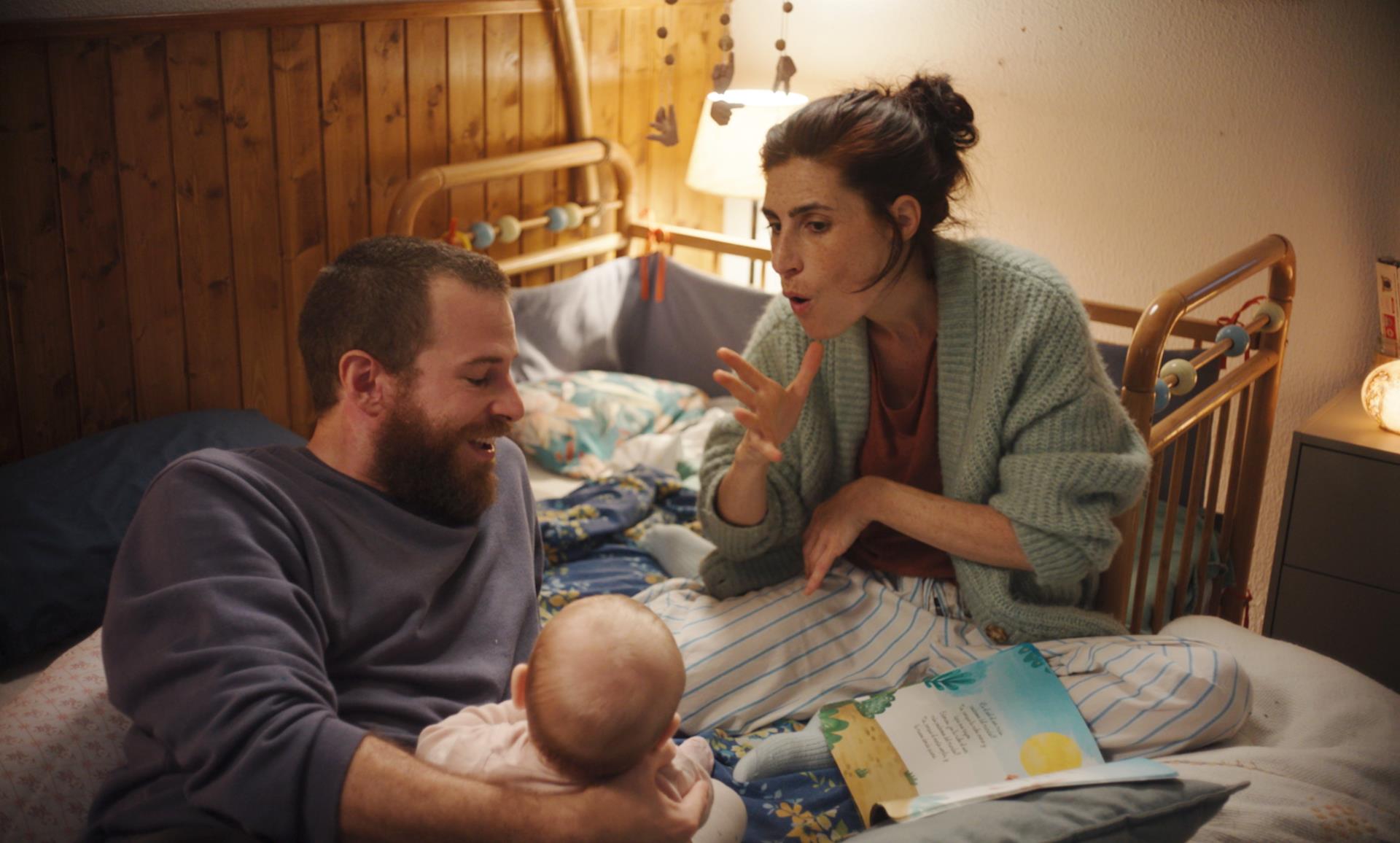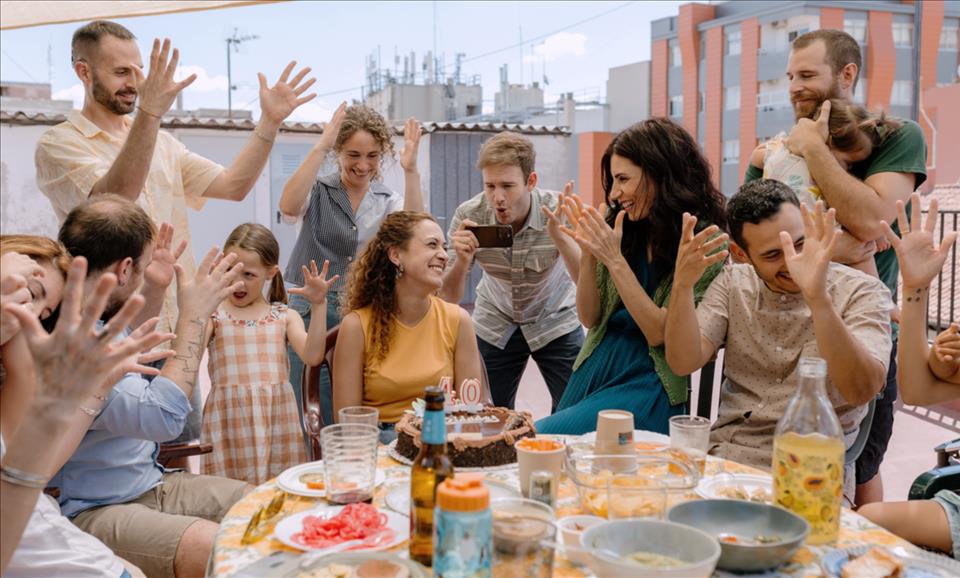
Deaf: A Powerful Film About The Real Struggles Of Deaf Families Navigating Medical Institutions And Parenthood
Throughout the film, there is a clear divide in deaf and hearing spaces, and clear differences in how people are treated in each one. A key element of this is the thoughtful effort to facilitate communication by adapting to people's different abilities.
At home, Ángela (played by deaf actor Miriam Garlo) and her partner Héctor (Álvaro Cervantes) communicate easily and comfortably in a mixture of sign and speech. Ángela's experience in work is similar. While her work colleagues don't sign fluently, they obviously value her and care about her and put effort into their communication and relationships. This care is reflected in the baby mobile they give Ángela, which has carefully moulded hands in different configurations so that Ángela's language is represented in her baby's toys.
Ángela is made to feel safe and valued at home and work thanks to the care and respect everyone shows to each other when communicating, whether in speech, sign or a mixture of both. The same is true of the deaf communities in which she and Héctor are involved – Héctor is embraced, teased, accepted and treated as an equal. But when their relationship encounters the hearing world, this all changes.
Despite Héctor's efforts to help Ángela communicate with healthcare staff, the indifferent medical system and emotional strain take their toll on him.
The issue comes to a head when the gynaecologist demands that he stops interpreting and moves out of Ángela's line of sight while Ángela is giving birth. This leaves her alone, scared and with her hands restrained by anonymous medical professionals whom she can't understand.
This deeply traumatic experience of giving birth is something that is very common for deaf women , which makes it extremely uncomfortable to watch on screen. It's an impossible decision that is forced on Héctor: does he insist on staying when the full power of the medical institution is drawn against him, possibly putting Ángela in further danger? Or does he acquiesce and leave his partner alone during this horribly traumatic ordeal?
It's a choice that colours their relationship. It is also a taste of what is to come. Together, they will have to make similarly impossible compromises, which are forced upon them by the discriminatory institutions and attitudes that surround them and their own emotions and beliefs.
The separation of the environments in which Ángela feels able to exist as a mother becomes increasingly stark as the film progresses. Her lack of access to speech and the lack of accommodations offered to her are cruelly highlighted in several of the interactions she has with hearing people, resulting in her growing alienation and isolation from the other parents in her daughter Una's nursery.
The speech- and hearing-centred expectations of the parent group and the nursery itself make her feel unable to be a competent mother in that environment. She is unable to join in with the simplest games and activities the nursery leader does with Una and the other children, as they are all based around sound.

Ángela and Héctor's home was a safe space but, after the birth, it becomes more complicated. Distinto Films Nexus
While she is still embraced as herself by the deaf community, she finds it difficult to be a mother in those settings as well. She finds it difficult to integrate the compromises she is having to make at home with who she sees herself to be, and this is affecting every part of her life.
In their home, where previously Ángela and Héctor were able to build a haven of communication based on equality, the invasion of Ángela's parents and Héctor's friends, none of whom sign well, unbalances the status quo they have carefully constructed. This disrupts the linguistic care work they each do for the other to the point that their relationship creaks under the strain.
This film isn't just about being deaf, although that is a huge part of Ángela's life, and the heartbeat of the film. It will also resonate with those who have multilingual families. It highlights the compromises, the guilt, the heartbreak and the joy that raising kids in multilingual and multicultural contexts can bring, and the huge amount of emotional work that goes with that. It's an important film, one that takes authenticity and representation seriously, and is one that anybody who works with deaf people at any stage of pregnancy and parenthood should watch.
Looking for something good? Cut through the noise with a carefully curated selection of the latest releases, live events and exhibitions, straight to your inbox every fortnight, on Fridays. Sign up here .

Legal Disclaimer:
MENAFN provides the
information “as is” without warranty of any kind. We do not accept
any responsibility or liability for the accuracy, content, images,
videos, licenses, completeness, legality, or reliability of the information
contained in this article. If you have any complaints or copyright
issues related to this article, kindly contact the provider above.
















Comments
No comment